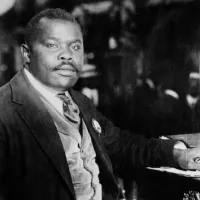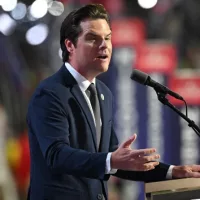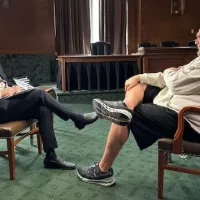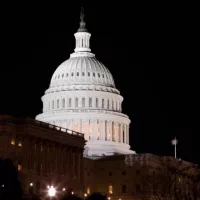
(WASHINGTON) — Former first lady Rosalynn Carter, who died at 96 last week, offered steadfast support for her husband, Jimmy Carter, throughout their 77-year marriage — but she forged her own legacy through humanitarian causes, including as a dedicated mental health advocate.
The Carter family released a statement Wednesday, acknowledging the impact Rosalynn Carter had on people’s lives.
“Rosalynn Carter’s deep compassion for people everywhere and her untiring strength on their behalf touched lives around the world,” the statement said. “We have heard from thousands of you since her passing. Thank you all for joining us in celebrating what a treasure she was, not only to us, but to all humanity.”
Her mission of mental health advocacy began during her husband’s 1966 campaign for Georgia governor, she wrote in her book, “Within Our Reach: Ending the Mental Health Crisis.”
As she campaigned for her husband, Carter wrote, she frequently heard from voters distressed about the conditions of family members living at a crowded psychiatric center in Milledgeville, Georgia. Then, one morning, an exhausted cotton mill worker shared that she and her husband worked opposite shifts to take care of their daughter with a mental illness.
Carter was “haunted” by that conversation, she wrote, and she set out to do something.
She learned her husband was holding a rally the same night she spoke with the family, she wrote. She surprised her husband in the greeting line, telling him, “I came to see what you are going to do to help people with mental illnesses when you are governor.”
He said he had been hearing the same things in his campaigning for governor. Jimmy Carter promised to help — when he was elected president, he named his wife as the active honorary chair of the President’s Commission on Mental Health during his White House tenure.
A report published by the commission led to the Mental Health Systems Act of 1980. It would have funded community mental health centers and services for low-income populations, however, it was mostly repealed by President Ronald Reagan, who succeeded Jimmy Carter months after it passed.
Carter was devastated when Reagan abandoned the new mental health policy, she wrote in her book. But it did not stop her from continuing her work through The Carter Center, the nonprofit she founded with her husband in 1982.
She continued to work for decades to drive mental health legislation, accurate media coverage and social change.
In 1996, Carter launched the Rosalynn Carter Fellowships for Mental Health Journalism to combat stigmas through storytelling. Since then, the program has awarded more than 220 fellows worldwide, according to The Carter Center website.
Fellowship recipient Aaron Glantz, bureau chief and senior editor at The Fuller Project, wrote on X that the former first lady “was the first person to ever ask me how my journalism would make an impact.”
“This simple question changed my life & so many others. Thank you,” Glantz wrote.
Tributes poured in after Carter’s death, including on a memorial page set up by The Carter Center. Many on the page mentioned the impact of her advocacy in their remembrances.
“My mother, who was from Alabama, suffered with mental illness all of her life from the 1950’s through 2016 when she passed. She experienced first hand the tragedy of stigma, discrimination and frightening treatment both in and out of hospitals. … She wrote to Mrs. Carter to thank her for her help. She was so thrilled to receive a response back,” one user wrote.
Another person recalled being sent to the same Georgia hospital that had helped spark Rosalynn Carter’s crusade decades ago.
“To me, the most meaningful of all of Rosalynn’s accomplishments was her work with mental illness. Mental illness is like any other disease. I was 14 years old when I was sent to Milledgeville,” the user wrote.
Caregivers — such as the cotton mill worker Carter met in 1966 — played a key role in her activism, she said. Carter founded the Rosalynn Carter Institute for Caregivers at Georgia Southwestern State University and later wrote a book focused on caregiving, one of three books she published drawing on her own advocacy experience.
Carter’s book “Helping Someone with Mental Illness: A Compassionate Guide for Family, Friends, and Caregivers” discussed the latest mental health treatments and how to help people with illnesses such as bipolar disorder, schizophrenia and anxiety.
The former first lady’s final book released in 2010, “Within Our Reach,” was a call to action, according to The Carter Center website. In the book, she describes a mental health system that continues to fail people in need.
But the former first lady had hope, too.
Speaking at the John F. Kennedy Presidential Library Forum upon the book’s release, she said she never dreamed that people could recover from mental illness when she began her work.
Carter said her goal was for the book to help dispel stigmas that cause people with mental illness to hide from help.
“To neglect those who, through no fault of their own, are in need, runs counter to our values, our decency and equality,” Carter said at the forum. “Today, with our knowledge and expertise, we have a great opportunity to change things forever, for all people with mental illnesses, with what we know now, to move forward to a new era of understanding, care and respect.”
Copyright © 2023, ABC Audio. All rights reserved.















